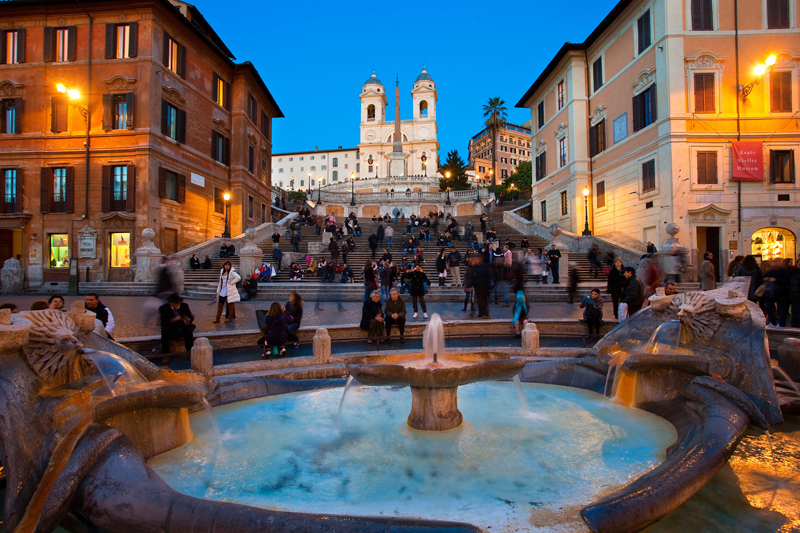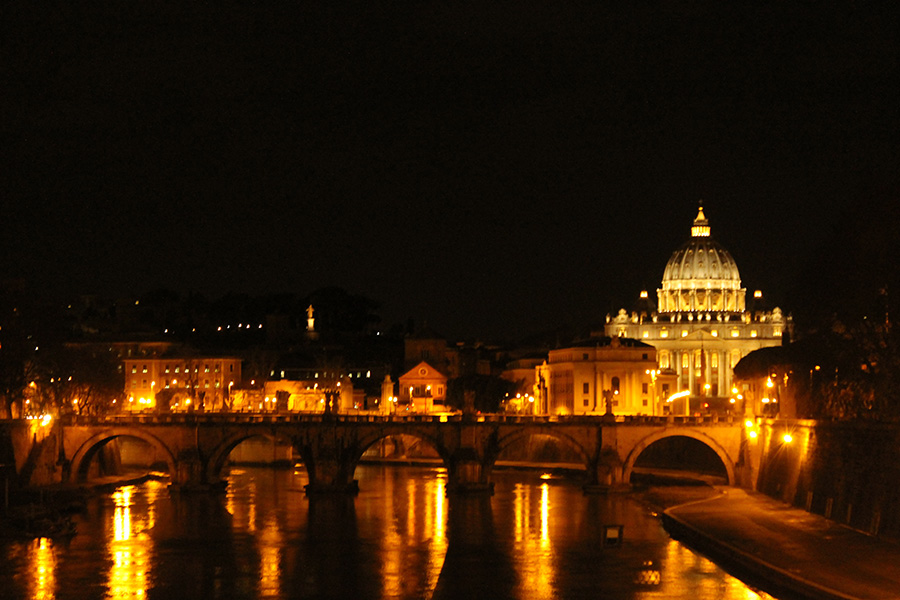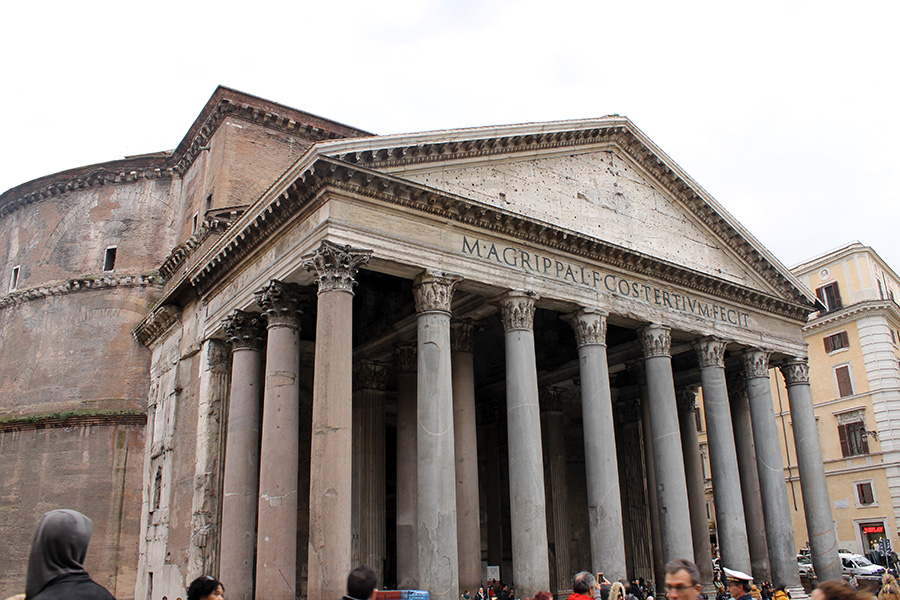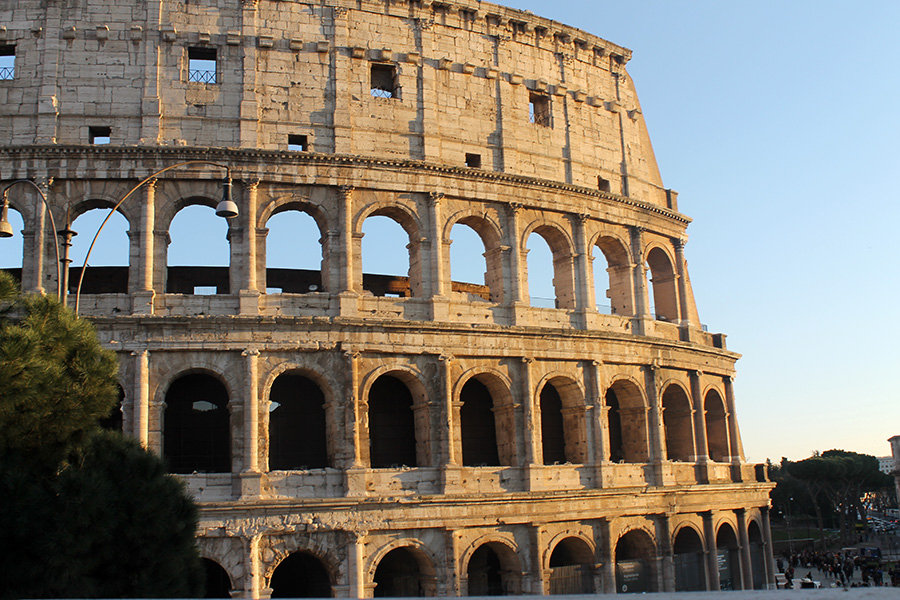Centro Congressi – Piazza di Spagna
Conference Room: De Chirico
Via Alibert, 5A – 00187 Rome, Italy
Conference Agenda
- December 9, 2016
- 08:30 - 09:00Registration (Registration Desk)
- 09:00 - 09:30Welcome and Opening Remarks
- 09:30 - 11:00Panel 1: Philosophy and Identity: Re-Thinking Authority, Subjectivity and Moral Diversity
- 11:00 - 11:30Coffee Break and Snacks
- 11:30 - 13:30Panel 2: Theorizing Collective Identities: Social Norms and the Self/Others Nexuses in the Dynamic Formation of Collective Identities and Social Movements
- 13:30 - 15:00Italian Specialties Lunch
- 15:00 - 17:00Panel 3: Identities as Endogenous Factors in Explaining Socio- Political Behaviors: Historical and Political Readings of Identitarian Claims
- 17:00 - 17:30Coffee Break and Snacks
- 17:30 - 19:30Panel 4: (En)Gendering Identities: Gender Narratives and Identities as Social Constructs
- 19:30 - 20:00Welcome Drink Out in Rome
- 20:00 - 21:30Optional Social Dinner in Rome
- December 10, 2016
- 08:30 - 11:00Panel 5: Performative Identities: The Relationship between Identity and Performance in Literature and the Performing Arts
- 11:00 - 11:30Coffee Break and Snacks
- 11:30 - 13:30Panel 6: Identity and the ‘Visual Turn’ in Social Representations: From Murals to Photo Interviews / Reportage and Internet Memes
- 13:30 - 15:00Italian Specialties Lunch
- 15:00 - 17:00Panel 7: Art, History and Identity Making: Visual Narratives of Identification From Artistic Signifiers to Urban Image Construction and Change
- 17:00 - 17:30Coffee Break
- 17:30 - 19:30Panel 8: Intellectual History Readings of Identity Making Processes: Collective Identities, Memory, Ethnicity and the Politicization of Identitarian Representations
- 19:30 - 20:00Concluding Remarks and Discussions
- 20:00 - 21:30Optional Social Dinner in Rome
- December 9, 2016
Identities and Identifications: Politicized Uses of Collective Identities (Fifth Edition)

- Conference Description
- Participant’s Profile
- Registration and Fee
- Social Activities and Publication
- Important Dates
- Venue and Directions
- Conference Program
- Panel 1
- Panel 2
- Panel 3
- Panel 4
- Panel 5
- Panel 6
- Panel 7
- Panel 8
The Fifth Euroacademia International Conference
Identities and Identifications
Politicized Uses of Collective Identities
9 – 10 December 2016
Centro Congressi – Piazza di Spagna
Rome, Italy
Conference Description
Identity is one of the crown jewelries in the kingdom of ‘contested concepts’. The idea of identity is conceived to provide some unity and recognition while it also exists by separation and differentiation. Few concepts were used as much as identity for contradictory purposes. From the fragile individual identities as self-solidifying frameworks to layered in-group identifications in families, orders, organizations, religions, ethnic groups, regions, nation-states, supra-national entities or any other social entities, the idea of identity always shows up in the core of debates and makes everything either too dangerously simple or too complicated. Constructivist and de-constructivist strategies have led to the same result: the eternal return of the topic. Some say we should drop the concept, some say we should keep it and refine it, some say we should look at it in a dynamic fashion while some say it’s the reason for resistance to change.
If identities are socially constructed and not genuine formations, they still hold some responsibility for inclusion/exclusion – self/other nexuses. Looking at identities in a research oriented manner provides explanatory tools for a wide variety of events and social dynamics. Identities reflect the complex nature of human societies and generate reasonable comprehension for processes that cannot be explained by tracing pure rational driven pursuit of interests. The feelings of attachment, belonging, recognition, the processes of values’ formation and norms integration, the logics of appropriateness generated in social organizations are all factors relying on a certain type of identity or identification. Multiple identifications overlap, interact, include or exclude, conflict or enhance cooperation. Identities create boundaries and borders; define the in-group and the out-group, the similar and the excluded, the friend and the threatening, the insider and the ‘other’.
Beyond their dynamic fuzzy nature that escapes exhaustive explanations, identities are effective instruments of politicization of social life. The construction of social forms of organization and of specific social practices together with their imaginary significations requires all the time an essentialist or non-essentialist legitimating act of belonging; a social glue that extracts its cohesive function from the identification of the in-group and the power of naming the other. Identities are political. Multicultural slogans populate extensively the twenty-first century yet the distance between the ideal and the real multiculturalism persists while the virtues of inclusion coexist with the adversity of exclusion. Dealing with the identities means to integrate contestation into contestation until potentially a n degree of contestation. Due to the confusion between identities and identifications some scholars demanded that the concept of identity shall be abandoned. Identitarian issues turned out to be efficient tools for politicization of a ‘constraining dissensus’ while universalizing terms included in the making of the identities usually tend or intend to obscure the localized origins of any identitarian project. Identities are often conceptually used as rather intentional concepts: they don’t say anything about their sphere but rather defining the sphere makes explicit the aim of their usage. It is not ‘identity of’ but ‘identity to’.
The Fifth Euroacademia International Conference ‘Identities and Identifications: Politicized Uses of Collective Identities’ aims to scrutinize the state of the art in collective identities research, to bring once more into debate the processes of identity making, identity building in both constructivist or de-constructivist dimensions. It is the aim of the Euroacademia conference to open the floor for dynamic multi-dimensional and inter-disciplinary understandings of identities in their historic formation or in the way they shape the present and future of organizations or communities.
Euroacademia aims to bring together a wide network of intellectuals, academics, researchers, practitioners and activists that are willing to share and open to debate their research on identity related topics. Disciplinary, trans and inter-disciplinary approaches, methodological assessments and recommendations, single case studies or cross-sectional analyses, reflective essays, experience sharing or works addressing new puzzles are all welcomed.
Participant’s Profile
The conference is addressed to academics, researchers and professionals with a particular interest related to the topic of collective identities from all parts of the world. Senior and junior researchers are equally welcomed. As the nature of the conference is intended to be multidisciplinary in nature, different academic backgrounds are welcomed.
Post-graduate students, doctoral candidates and young researchers are welcomed to submit an abstract. Representatives of INGOs, NGOs, Think Tanks and activists willing to present their work or projects with impact on or influenced by specific understandings of identities are welcomed as well to submit abstracts of their contributions.
Abstracts will be reviewed and the participants are selected based on the proven quality of the abstract. The submitted paper for the conference proceedings is expected to be in accordance with the lines provided in the submitted abstract.
Registration and Fee
The Registration Process is Closed
The Participation Fee Includes:
- the registration fee
- participant’s package with all the materials for the conference
- eligibility for publishing of the presentation in the conference volume
- a copy of the electronic volume
- access to Euroacademia discussion group and newsletters
- 2 daily coffee brakes with snacks and refreshing drinks during the conference
- a 3 course Italian specialties lunch on 9th of December 2016
- a 3 course Italian specialties lunch on 10th of December 2016
- certificate of attendance
- access to optional social program
Please be aware that the final confirmation of attendance will be considered upon the payment of the participation fee until the 10th of November 2016
The participation fee can be paid only through bank transfer . A confirmation of receipt will be sent to selected participants by e-mail together with the scanned invoice. The original invoice will be delivered to accepted participants on site at the conference.
Unfortunately, Euroacademia has no available funds for covering transport and accommodation to/in Rome. Participants are responsible for securing funding to cover transportation and accommodation costs during the whole period of the conference. Official invitation letters can be sent by Euroacademia to the financing institution to confirm the selection and participation in the conference upon request.
Social Activities and Publication
A specific spot in the conference program will be dedicated to social networking and therefore all the participants interested in setting or developing further cooperation agendas and prospects with other participants will have time to present and/or promote their project and express calls for cooperation.
Photos and videos will be taken during the conference and the organizers will consider through the participation of selected presenters or members of the audience that the agreement for being photographed or filmed during the event was granted through registration to the event. Please notify the organizers in written form prior to the the event if you are a confirmed participant and would prefer otherwise.
A specific setting (Social Corner) for promotional materials connected with the topic of the conference will be reserved for the use of the participants. Books authored or edited by the participants can be exhibited and promoted during the whole period of the conference and can also be presented within the conference package based on prior arrangements.
An optional dinner and as social event will be organized for the first and second evening of the conference in a typical Roman cuisine restaurant as optional program for the willing participants. The social dinner will be held based on participant’s prior confirmation and it may cost around 25 Euro to be covered by the participants individually.
Publication:
Selected papers will be published in an electronic volume with ISBN after the confirmation of the authors and a double peer-review process based on an agreed publication schedule. All the papers selected for publication should be original and must have not been priory published elsewhere. All participants to the conference will receive a copy of the volume.
| Important Dates | |
|---|---|
| 15th of October 2016 | Deadline for Submitting Panel Proposals |
| 1st of November 2016 | Deadline for Paper Proposals: 300 words abstracts and details of affiliation |
| 2nd of November 2016 | Latest notification of acceptance |
| 5th of November 2016 | Sending the Registration Form |
| 10th of November 2016 | Payment of the conference fee |
| 30th of November 2016 | Sending the draft paper to be uploaded on the web site of the conference |
| 1st of December 2016 | Publication of the conference program and uploading the draft papers on the website |
| 9th of December 2016 | The conference commences at 9.00 am |
Venue and Directions
The conference will take place in the heart of Rome at Centro Congressi – Piazza di Spagna, centrally located in an enchanting part of La Città Eterna, just steps away from the fabulous Piazza di Spagna
Centro Congressi – Piazza di Spagna
Via Alibert, 5A – 00187 Roma – Italia
Tel: +39 (06) 36019016
Fax: +39 (06) 36019016
[email protected]

Centro Congressi – Piazza di Spagna is located in Via Alibert, a side street of Via Margutta, in a surrounding and central location that can only be defined as fantastic. In the heart of Roman history, fashion and art, it is situated a short distance from Piazza di Spagna, Via Condotti, Via del Babuino and their exclusive designer labels. In addition, Via Margutta has been the street of the artists and Roman art galleries since 1600, when it was inhabited by famous painters such as Salvator Rosa, the Zuccari brothers, Guido Reni, the Carracci brothers and a large community of artists, mostly foreigners, as well as noble Roman families and illustrious guests, for whom buildings and hotels were built.
Inside the Conference Centre, there is a real theatre. In this way, an ancient tradition is renewed: in fact, from the beginning of the eighteenth century until 1863, Via Alibert was the home of a great and famous Roman theatre: the Teatro Alibert. The restoration work carried out on the occasion of the opening of the Conference Centre, chose to maintain a nineteenth-century style externally, while a very contemporary design was chosen for the interiors, which have been decorated with specially commissioned paintings by well-known artists.
Some ancient relics were discovered during the restoration work, which were recovered and made visible. For example, the Sala Michelangelo has a ceiling with cross vaults all made of small pink bricks typical of the period. In the Sala Raffaello, a section of an underground aqueduct dating back to the Roman era can be seen, through which the Acqua Vergine from the pool beneath the Pincian Hill flows, supplying water to the Barcaccia fountain in Piazza di Spagna and the Trevi Fountain. The arrival point of the water has been transformed into a fountain that flows, creating a lovely effect over a majolica panel.
HERE
Conference participants are responsible for arranging the accommodation and travel to Rome.
Conference Program
The Conference Agenda is available in the right sidebar of this page.
The extensive conference program with abstracts and available draft papers is accessible below by clicking on the panel number tabs and individual presentations.
Philosophy and Identity: Re-Thinking Authority, Subjectivity and Moral Diversity
- Post-Identitarian Subjectivities? Philosophical Anthropology after the ‘End of Man’More than 200 years after the establishment of philosophical anthropology as a philosophical discipline, its status remains vague and ambiguous. This paper aspires to a recalibration of philosophical anthropology’s research program by reflecting upon its origin in Kant’s philosophical core question: ‘What is Man?’.Jens De Vleminck, Department of Philosophy and Moral Sciences, Ghent University, Belgium
- The One, the Some and the Many: Isaiah Berlin’s Notions of Belonging and Recognition Within His Conception of PluralismThe purpose of this paper is to analyse the concept and relevance Isaiah Berlin attributes to collective identity — expressed in notions such as the “need to belong” or the “desire for recognition” — within his conception of pluralism, especially amid its universalising and diversifying tensions.Ana Vascocelos Martins, Universidade Católica Portuguesa (IEP), Portugal
- Phenomenology of Authority. The Formation of Identity as a Political AporiaThe objective of this paper is to formulate a broad concept of “authority”, whose correspondence with the identity of the contingent “other” to whom Derrida claims to grant an unconditioned sacrifice shows the dangerous lack of effective political difference between Derrida’s attitude and the attitudes, such as dialectics, he intends to deconstruct.Domenico Cortese, University of Dundee, UK
Theorizing Collective Identities: Social Norms and the Self/Others Nexuses in the Dynamic Formation of Collective Identities and Social Movements
- How Do the Social Norms and Expectations Influence Individual Behavior? Quantum Model of Self/Other Interaction in the Strategic Decision-MakingThis paper presents a quantitative model of the self - and the other - perspective interaction based on so called 'quantum model of decision-making'. This approach models a given situation as the vector in N-dimensional vector space (C*-algebra) and it specifies the probabilities of the individual outcomes. Specifically, the model enables to define how the actor's expectation about others influence her decision (and vice versa). The model was designed for the strategic interaction of two players and tested in the case of one shot Prisoner`s Dilemma game.Jakub Tesar, Institute of Political Studies, Charles University, Prague, Czech Republic
- Political Subjectivization between Identification and Dis-identification – Understanding New Social Movements with Jacques RancièreI would like to argue that more recent social movements are thoroughly affectively attuned assemblages that are characterized nonetheless by their preliminarity and their unpredictability. Their members oscillate between moments of identification and dis-identification and expose themselves in their singularity.Dietmar Wetzel, Institute of Sociology, University of Basel, Switzerland
- Using Melucci’s Model of Collective Identity and Action System Today: The Case of the Hacktivist Movement AnonymousThis paper discusses the popular model of collective identity of Alberto Melucci, how it has been used in the academia, what are its shortcomings and how they can be superseded. Melucci’s collective identity model is almost always referred to in academic publications dealing with collective identity in social movements. Yet, the model is never fully used. The present article focuses on the part of the model that is most of the time overlooked, that is the ‘action system’.Sylvain Firer-Blaess, Independent Researcher, Lyon, France
- Neoliberal Occupation: Framing the Israeli J14 Movement Collective Identity by State BureaucracyThis study focuses on the interpretation and construction of the Israeli J14 protest movement collective identity by state bureaucracy. The analysis focuses on the Trachtenberg committee which was assigned by Israeli prime minister in order to meet the demands of the demonstrators. By conducting critical discourse analysis this study wishes to reveal the ways in which Israeli state bureaucrats used specific interpretative frames which served their political interests regarding the J14 movement.Yulia Shevchenko, Ben-Gurion University of the Negev, Israel
Identities as Endogenous Factors in Explaining Socio-Political Behaviors: Historical and Political Readings of Identitarian Claims
- The Question of the Political Uses of National Collective IdentitiesFirst of all, we will try to outline in a substantive way the very notion of “National Collective Identity”, in order to clarify consequently how this notion can be used in a political manner, with the aim to reach normative conclusions about the issue. However, this idea of “National Collective Identity” will be mainly considered regarding our liberal scenarios, which include some important moral restrictions, and it will be argued, in this way, that no really comprehensive idea of nation can be reached regarding those scenarios without paying attention to those moral restrictions.Carles José i Mestre, Department of Philosophy, University of Barcelona, Spain
- Telling The Story of A Politicized National History: The Field and Habitus Making of Israeli HistoriansWhile critically following the dividing line between the world of academia (with all its institutions and inner dynamics) and the general socio-political space, the generations of Israeli historians and the nature of their intellectual work (the field of ideas) form a solidly social unit to investigate.Alon Helled, University of Turin, Italy/ EHESS Paris, France
- Model Others, Identity and Globalization: Tentative Theoretical Observations from a Case Study of Parliamentary Discourse in IsraelEndogenous changes in national identity are a context that should be viewed as a catalyst for, rather than mere byproduct of, the rapid globalization that swept across Israel from the 1990s.Judah Troen, Hebrew University of Jerusalem
- Make America White Again: Revaluating Whiteness Currency in the United StatesI take a look at the construction of whiteness, and the present state of white subjectivity in the United States, and in the process, examine American 'national consciousness'. Using some basic economic concepts of currency value, I draw an analogy between fluctuations in the value of currencies, often generated by market pressures and the cultural and social changes in the perception and status of the races, which are often generated by sociopolitical pressuresMarianella Belliard, Pontificia Universidad Madre y Maestra, Santo Domingo, Dominican Republic
- Equal in the Eyes of Capitalist God: Gay Marriage and the Contemporary Intimacy RegimeThe heart of this paper will be a reading into the marital institution, positioned in the neurotic encounter point of the two capitalistic modes, hence arising overwhelming emotions of anxiety and compassion.Omri Herzog, Cultural Studies Department, Sapir College, Israel
(En)Gendering Identities: Gender Narratives and Identities as Social Constructs
- Anti-Essentialism about Gender: Realist, Constructionist, or Error Theoretical?In this paper I will argue that anti-essentialist positions do not always fall neatly into the categories provided by the tripartite taxonomy, but that the distinctions made by analytic philosophers about social constructionism can help us to understand exactly what is being claimed by anti-essentialists.Matthew Cull, University of Sheffield, United Kingdom
- “Not Man Enough”: Masculinities and Political Conservatism in the United StatesUltimately, this paper unsettles fixed notions of identity politics in the United States. In campaigns, conservative candidates have lost control of their claim to being the party of 'real men'. Because men cannot settle on what masculinity means. Gender is not fixed, and when these candidates pretend it is, it backfires.Lauren Haumesser, University of Virginia, USA
- British Born Female Caribbean Registered Nurses: Post-Colonialism and the OtherThe past and present for British born Caribbean nurses (BBCN) is one that is born out of the long colonial relationship between Britain and parts of the Caribbean. Caribbean women were actively recruited to train and work as registered nurses in the National Health Service in the mid-20th Century. This colonised relationship recognises a 'power identity nexus' of white dominance and supremacy.Beverley Brathwaite, Birmingham City University, United Kingdom
- Crossing Borders: Fluctuating Identities in a Feminist ClassroomThe paper presents one unique fragile space/moment of resistance/encounter, a “teaching story” (as I call it) demonstrating a way in which certain behaviors and voices question the established Israeli identity politics that sustain existing rivalries. The story addresses the failed attempt of Abeer, a Palestinian Muslim woman, and Shani, a Mizrachi woman, both from oppressed minority groups in Israel, to cross existing identity-divisions and to initiate an act of solidarity.Tamar Hager, Tel Hai College, Israel
- The Great Need of Solidarity: The Strategic Essentialism of the Black Protest in PolandThis essay explores the current situation in Poland as regards the recently proposed complete abortion ban. I will try to describe the mechanism of the nationalist discourse, which is increasingly popular in the public sphere of the country. According to this narrative, a woman is considered someone who reproduces race, capital and patriarchal system through her dependence, sexual and mental passivity, home-boundedness, and symbolic as well as physical isolation from other women. I will then present how strategic essentialism (Spivak: 1987) can become a useful tool against the patriarchal oppression, illustrating it with the case of the Polish Black Protest (3rd of October 2016)Marek Susdorf, Utrecht University, The Netherlands
Performative Identities: The Relationship between Identity and Performance in Literature and the Performing Arts
- Early Modern Autobiography and Political Identity: The Case of John Lilburne (1614-1657)Ultimately, this paper argues the centrality of autobiographical writing in respect of the historical process of identity-making. The different forms of self-writing that emerged in this period hint to the new centrality of the individual within society.Gaia Celeste, Department of Historical Studies, University of Bristol, United Kingdom
- The Politicization of Identities: A Life-Writing PerspectiveThis paper will illustrate how life-writing can shed light on the conscious and unconscious politicization of identities with respect to Europe past and present.Sigrid Julia Newman, University of Cologne, Germany
- Unspoken Trauma: The Dislocated Self in ‘The New York Trilogy’Drawing on Trauma theory, this essay attempts to examine how The New York Trilogy is an artistic materialization of an underlying trauma leading to a confused definition of identity.Mongia Besbes, Faculty of Arts and Humanities of Sfax, Tunisia
- Literary Art in Digital Performance: The Technological and Digital Evolution of American IdentityThe focus of this research is to analyze the relationship between technology and identity in literature, observing how literature, as a mirror of society, portrays the problematization of identity.Beatrice Melodia Festa, University of Verona, Italy
- Body Talks: Art and Identity in Modern StatesIn this paper I would like to explore the intersections between performance art and politics in the postcolonial world. Contemporary artists attend actively to the intellectual discussion of migration, construction of national identity and postcolonialismShuo Hua, The Hong Kong Institute for the Humanities and Social Sciences, University of Hong Kong
- Indeterminate Identities: Body Art, Ritual and the SubjectThis paper will explore the seemingly contradictory approaches to subjectivity that are addressed in body art and ritual, proposing a potential solution through British anthropologist Victor Turner's theory of the liminal and the liminoid.Tom Isaacs, Sydney College of the Arts, Sydney University, Australia
Identity and the ‘Visual Turn’ in Social Representations: From Photo Interview / Reportage to Internet Memes
- Identities on the WallsThe argument of the proposed paper is that cultural violence lies in historical narratives, by forming identities in opposition to each other, thereby legitimising the conflict in question. In order to investigate cultural violence we must find a cultural expression that presents a historical narrative that legitimises, justifies and celebrates violence.Fredrika Larsson, Lund University, Sweden
- Experiences in Researching Collective Identities by Photo Elicited Narratives in Times of a Turbulent EuropeRecognizing the “visual turn” in social sciences, we investigate narrative identities constructed around the pictures in use and therefore getting a deeper understanding – especially of the emotional components - of identities of our respondents. Experiences with this technique are in the center of our contribution, as well as conclusions about possible components of modern collective identities.Elisabeth Donat, Danube University Krems, AustriaUlrike Guerot, Danube University Krems, Austria
- Illustrating the Jungle Camp: Reportage and Identity Formation in the UK and French PressThis paper explores this alternative method of reporting by focussing on the considerable coverage that the Jungle camp at Calais has received through illustrated reportage across the British and French press and beyond.Gabrielle Cariolle, Arts University Bournemouth, UKPaul Roberts, Arts University Bournemouth, UK
- Treatment of Minorities in the Media – Visualizing the OtherQuestioning the visual material intending to represent ‘diversity’ is leading us to re-investigate the tension between the French republican model and the multicultural society designed by globalisation dynamics. We will argue that ‘diversity’ is a depoliticized visual concept in the French context.Emmanuelle Bruneel, CELSA Paris-Sorbonne, France
- Shifting Ideologies within Internet MemesThis paper explores how the function of the meme bridges groups and identities primarily through association with image, rather than any coherent discourse provided by text. Specifically I aim to identify instances in which ideological content becomes attached to such Internet based visual phenomenon. Concentrating on seemingly ideologically neutral sources of cartoon or webcomic based imagery my intention is to examine instances in which images are reused and re-contextualised within divergent and sometimes contrasting group identities.Vincent Larkin, Arts University of Bournemouth, UK
Art, History and Identity Making: Visual Narratives of Identification From Artistic Signifiers to Urban Image Construction and Change
- Vital Reproduction and Creative Conservation: The Shaping of Sienese Identity in Rutilio Manetti’s Crucifix from 1625 for the National Sienese Confraternity in RomeThe paper investigates two different approaches in the creation of identity that are united in the work of Manetti. Firstly, the vital reproduction of an iconic object that, secondly, gives shape to a creative conservation of Sienese religious tradition. The life-size depiction of the national saint, who was recognized as such by pope Urban VIII only in 1630, is a powerful manifestation of Sienese nationality.Lilla Mátyók-Engel, Institute of Art and Visual History, Humboldt-Universität zu Berlin, Germany
- Once Upon a Time in Russia. Depictions of a Nation through Fairy Tales in the Russian Painting of the 19th CenturyBy adapting to the first painting’s destination Vasnetsov converted the kingdoms of the fairy tale to represent the richness of natural resources of the Donetsk area and kept this modification in his second version. Thereby he decided to focus on the depiction of the county itself and only utilized the fairy tale as a means for this purpose.Ludmila Piters-Hofmann, Humboldt University of Berlin, Germany
- Identification through Art (“Amikejo” Projects)The paper explores the complex issue of identification, intended as the open-ended and unfinished act of signification through which a community 'imagines' itself by transferring particular meanings to the surrounding reality, which finally becomes a space for cultural identity.Valentina Dal Fior, Atelier “Valeska Peschke”, Berlin, Germay
- Integrative Urbanism: Rethinking Identity and Preservation in Post-Revolutionary HavanaSeeking a third option at the intersection of this socialist/capitalist divide, this paper describes 4 student projects from THE CUBA STUDIO, a collaborative Integrative Urban Studio at (withheld) University’s School of Architecture.Gabriel Fuentes, School of Architecture, Marywood University, Scranton, Pennsylvania, USA
- Identity Struggle in Post-Socialist City – Rebranding Belgrade, Reinventing SkopjeThe analysis of physical transformations of two case cities within this framework should explain political background of national identity building through large-scale urban development initiatives.Nebojša Čamprag, Technical University of Darmstadt, GermanyBiljana Stefanovska, Technical University of Darmstadt, Germany
Intellectual History Readings of Identity Making Processes: Collective Identities, Memory, Ethnicity and the Politicization of Identitarian Representations
- The Puzzles of Turkey’s EU Accession Negotiations: Discursive Constructions of the EU in ‘Loosely-Coupled’ Two-Level GamesThe paper will argue that neither the conditionality approach nor the clash-of-civilization thesis can explain major puzzles in Turkey’s EU accession negotiations, in particular the changing positions of the German and Turkish government. The paper will suggest the model of 'loosely coupled two-level games', in which government parties on both sides mainly act with a view to the domestic political arena.Jörg Baudner, University of Osnabrueck, Bremen, Germany
- Baltic Identities in Quest between the Competing Memory DiscoursesIn my research I am taking identity formation process in conjunction with social memory. Approaches to memory are seeking an agency behind the practice of remembering and representation of the past. While individuals ‘do remembering’ the content of memory comes from outside the individual, and rests on different collectives (Olick 1999).Edmunds Šūpulis, Institute of Philosophy and Sociology, University of Latvia, Riga, Latvia
- Representing the Margins: ‘Gypsy’ in Early Modern Ottoman DiscourseDrawing upon Ottoman narrative and visual sources such as dream manuals, literary texts, travelogues and miniatures, this paper will first examine how Gypsies were imagined and represented in early modern Ottoman-Turkish discourse.Faika Celik, Celal Bayar University, Manisa, Turkey
- Subaltern Youth Identities in Bosnia-HerzegovinaThis paper examines how the 2014 social unrest in Bosnia-Herzegovina (BiH) manifested on the Spanish Square in the divided city Mostar, revealing how counterpublics reimagine citizenship and identity. Here citizens reimagined space and identity by using the Square as a site of occupational protest, embodying the counterpublics of resistance and giving life to alternative identities through the language of rights.Dilia Zwart, Independent Researcher, Brussels, Belgium / Harvard College, Cambridge, USA
- The Role of Collective Identities Management in Offsetting the Ethno – Social Distance (Case of the Republic of Macedonia)The Macedonian case of managing the collective identities offers a comprehensive restructuring of the society, using both positive and negative social and historical memory narratives.Irina Simonovska Spirkovska, University of Bucharest, Romania































